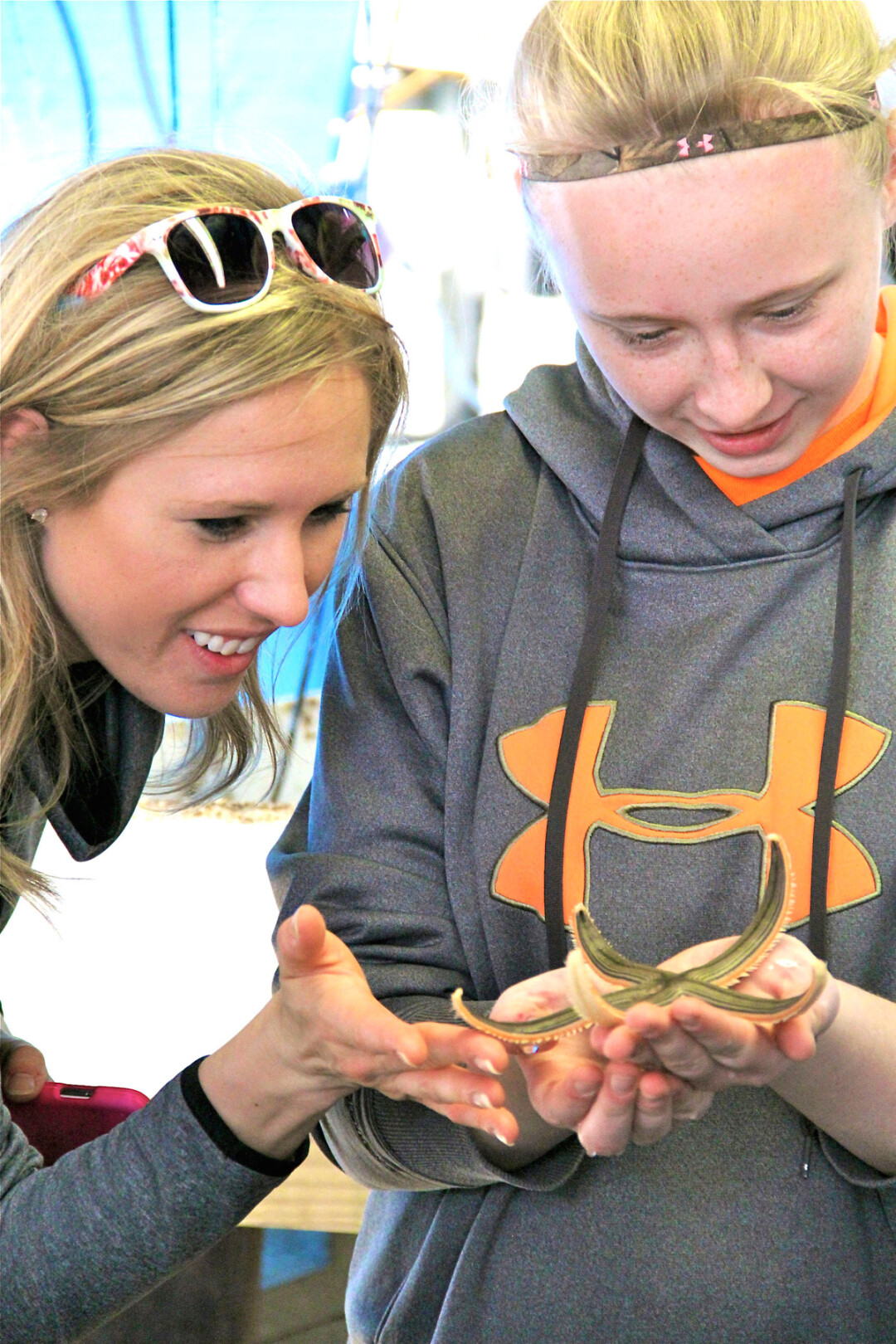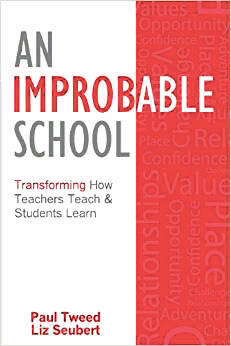Improbable Success
teachers’ book explores Wildlands School’s approach

“The biggest difference between what Wildlands Charter School does and what traditional schools do is this: Wildlands teaches you how to learn, how to develop your own abilities and how to do anything, while traditional schooling teaches you how to be a student.”
2013 Wildlands graduate and current UW-Madison student Michael Barton recently made this statement in an email to Wildlands teacher Liz Seubert. In the email, Barton shared the disappointment he felt for some of his university peers, who were, in his opinion, unable to “think outside the box” to solve problems or to take initiative to learn topics on their own. In fact, Barton made a plea in his email to Seubert that she and the other Wildlands teachers consider starting a university.
“I would be willing to bet that employers would value real-world experience more than any lecture notes or exams,” Barton’s email continued. “(Wildlands University graduates) would not only have a diverse skill set, but be able to adapt and learn something new on their own.”
Treating students like humans – as contributing members of the school community – is a vital concept at Wildlands, which places high expectations on all students. Core academics are covered in large part through research projects related to the natural world.
Wildlands is a teacher-led, project-based, public charter school located at Beaver Creek Reserve in Fall Creek. Funded by Wisconsin’s per-pupil allotment for the Augusta School District, its students come from districts across the region, including Eau Claire, Chippewa Falls, Altoona, Fall Creek, Osseo, New Auburn, Menomonie, Elk Mound, and Eleva-Strum. Although its four-teacher staff has no current plans to establish a post-secondary institution, they are dedicated to providing their seventh- through 12th-grade students with the same flexible, dynamic and student-centered education that enabled Barton – and the 74 other students who have graduated since the school opened in fall 2005 – to hone not only academic skills in math, science, English, and other subjects, but also soft skills such as problem solving, critical thinking, time management, communication, teamwork, and independent learning.
How Wildlands provides such an experience is detailed in the recently published book, An Improbable School: Transforming How Teachers Teach & Students Learn, which Seubert and Wildlands founder and teacher Paul Tweed co-authored. In the book, they describe the “seven essentials” that have created Wildlands’ student-owned, community-based culture: relationships, values, opportunity, adventure, challenge, confidence, and place.

“When the school opened in 2005 with 40 students, we asked the kids what they wanted,” said Seubert. “We consider that first year of students our founders, as they really got the ball rolling on what Wildlands would be and what we would be doing – and how we would act as humans.”
Treating students like humans – as contributing members of the school community – is a vital concept at Wildlands, which places high expectations on all students. Core academics are covered in large part through research projects related to the natural world. These projects require students to read, write, investigate, report, and present results, and are scaffolded from teacher-driven to student-driven projects as students adapt and become more and more responsible for their educational experiences.
By graduation, students have gone from working with teachers on school-based projects using curricular resources, such as studying all the insects in a nearby prairie, to leading “community connection” projects that deliver meaningful resources to community entities, such as working with the U.S. Army Corps of Engineers and the Lake Eau Claire Association to develop a comprehensive, bathymetric map of Lake Eau Claire using GPS, GIS, and other technology. That map is now used to manage lake water quality issues.
“By the time our kids are juniors and seniors, they’ve realized that they are in charge and this is their education, and we’re there to support them,” said Tweed, who has been an educator for 30 years. “Students have shown us in both ‘normal measures’ like standardized testing, ACT completion, college acceptance, etc., and by demonstrating accountability through the completion of projects, work, etc., that this method works.”
For the 60 students who are accepted every year to Wildlands, this method will not only provide them with academic knowledge but with the skills they need to continue succeeding in life. Since opening a decade ago, 75 percent of Wildlands graduates have gone on to post-secondary education and 20 percent have entered the military. All have graduated.
“We’ve been granted a tremendous opportunity to provide students with different opportunities in different ways that better match up with how the world works,” Seubert said. “We really strive to prepare students for a work environment, and for being responsible to team members and being a bigger part of something other than a worksheet that’s due at 9am.”
 “All students are different, and every student deserves an opportunity to be part of something they belong to,” Tweed added. “A graduate recently told us that he wished all education was something that students viewed as something they do instead of something done to them. That is really our core belief.”
“All students are different, and every student deserves an opportunity to be part of something they belong to,” Tweed added. “A graduate recently told us that he wished all education was something that students viewed as something they do instead of something done to them. That is really our core belief.”
An Improbable School is available at Beaver Creek Reserve, S1 County Road K, Fall Creek; The Local Store, 205 N. Dewey St., Eau Claire; or Amazon.com. Seubert and Tweed are planning a second book, tentatively titled Improbable Teaching, which will focus more on the curriculum and mechanics of successfully operating a project-based school. Stay tuned!






















